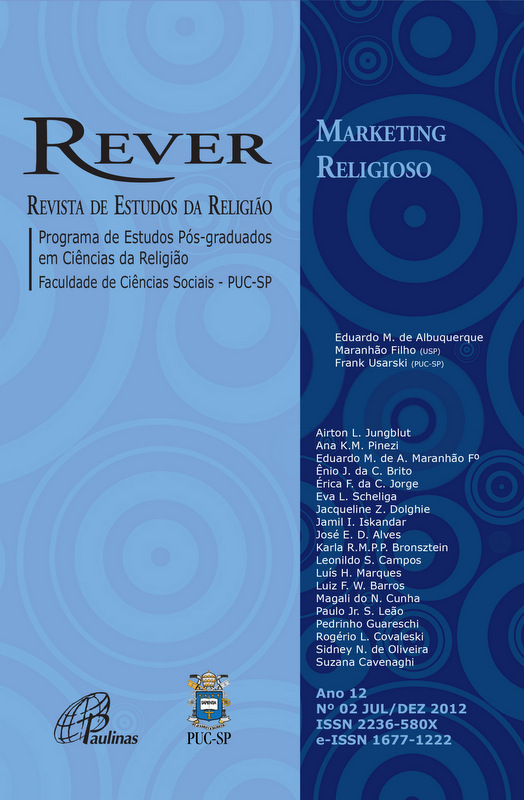The dynamics of religious affiliations in Brazil between 2000 and 2010: diversification and changing process of hegemony
Keywords:
Religious plurality, Demographic Characteristics, Census 2010, BrazilAbstract
The objective of this paper is to analyze the dynamics of religious affiliations in Brazil between 2000 and 2010, focusing on four major religious groups: Roman Catholics, evangelicals, without religion, and all others. The number of Catholics adherents, which was already falling in relative terms, declined in absolute numbers for the first time in the last decade. People who declared to be evangelicals maintained the growth trend, both in absolute and relative terms. The number of people without religion continued to increase, representing the third biggest group in our analysis. The group of other religions, even small in aggregate, also increased. Brazil has been undergoing a process of religious diversification and a regional and demographic analysis of the population, according to the religious options, help understanding the ongoing process of change in the hegemony of Catholics and the greater plurality in the composition of religious affiliation in Brazil.
Metrics
Downloads
Published
How to Cite
Issue
Section
License

This work is licensed under a Creative Commons Attribution-NonCommercial 4.0 International License.
Authors who publish in this journal agree with the following terms:- Authors retain copyright, but grant the journal the right of first publication, with the work simultaneously licensed under the Creative Commons BY-NC License.
- Authors are authorized to assume additional contracts separately, for non-exclusive distribution of the work published in this journal (e.g., publishing in an institutional repository or as a book chapter), as long as with acknowledgment of authorship and first publication in this journal.


